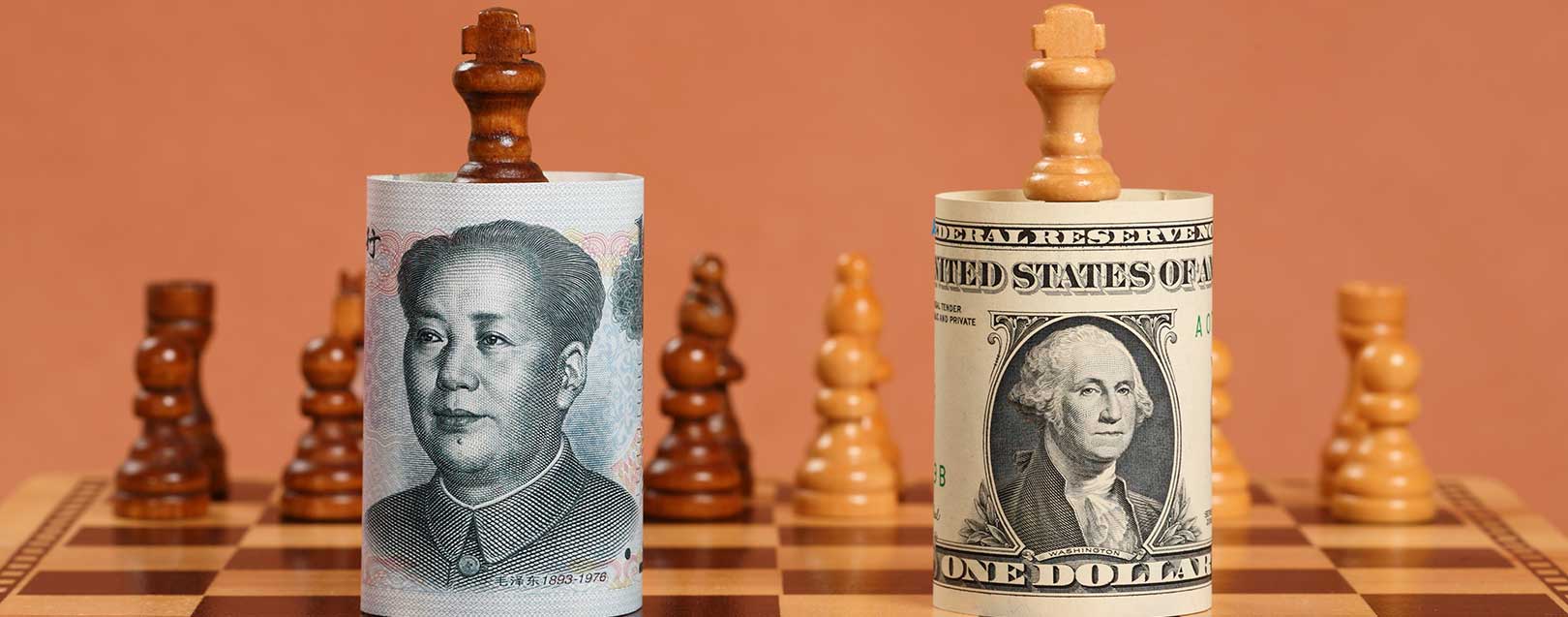
Lack of progress in US, China trade talks, 100-day action plan nears
The Dollar Business Bureau
US and China failed to agree on major new steps to reduce US's trade deficit with China, leading to doubts over the economic and security relationship between the two countries.
The annual economic session in Washington dubbed by the Trump administration as US-China Comprehensive Economic Dialogue (CED) ended with both the sides refusing to hold news briefs or joint statements with no news announcements on US market access to China.
Though both the sides had open and frank talks, they failed to come to a consensus on major bilateral and economic issues that were important for the US. According to Reuters, US had asked for- major access to China's financial services markets, reduction in China's steel capacity, reduction in auto tarriffs, cutting subsidies for state-owned enterprises, ending Chinese requirements for data localization and lifting ownership caps for foreign firms in China.
US Treasury Secretary Steven Mnuchin, in a brief statement to the media, that spoke of some consensus in the talks said, 'China acknowledged our shared objective to reduce the trade deficit which both sides will work cooperatively to achieve.'
The Chinese embassy in a separate statement said, 'both the sides had acknowledged 'significant progress' on the 100-day talks and would work together to reduce the trade deficit.'
"The two sides will expand areas of cooperation in services and increase trade in services; expand mutual investment, and create a more open, equitable, transparent and convenient investment environment," the embassy said.
Commerce Secretary Wilbur Ross and Treasury Secretary Steven Mnuchin had opened the talks between the world's top two economies with tough demands for a more "fair, equitable and reciprocal" relationship, with more access for American- made goods and services.
The US side yesterday blamed the unbalanced relationship -- marked by a trade deficit with China of $309 billion last year -- on Beijing's policies that impede access to their market. China says Washington's own rules restricting US high-tech exports are partially to be blamed.
"The principles of balance, fairness, and reciprocity on matters of trade will continue to guide the American position so we can give American workers and businesses an opportunity to compete on a level playing field."
In his remarks at the one-day meeting's opening ceremony, Ross had insisted change was necessary given the more than 200 percent surge in Chinese exports to the United States in the last 15 years.
"If this were just the natural product of free market forces, we could understand it, but it's not," Ross said.
"So it is time to rebalance our trade and investment relationship in a more fair, equitable and reciprocal manner." The tough talk seemed like a return to Trump's message during his campaign, when he attacked Beijing for unfair trade practices. However, a meeting with Chinese President Xi Jinping at his Florida resort in April had prompted a change of rhetoric and the launch of a 100-day economic cooperation plan.
That led to specific but narrow achievements, including opening the Chinese market to US beef exports, and China agreeing to grant limited access to US to its financial markets.
The discussion mechanism is a continuation of regular talks undertaken by the previous two administrations.
Ross said China accounts for half of the US goods trade deficit and Mnuchin said Beijing must address "the imbalances caused by the Chinese intervention in its economy." Mnuchin said the talks with Wang would focus on concrete steps to provide greater access and a "level playing field" for US companies in the world's second largest market.
Improving US-China trade in turn "will create prosperity for our two countries and the world," he said.
But China experts were skeptical the talks would make headway in the near term, and cautioned the US goals may be over-ambitious.
David Dollar, a former US Treasury emissary to China, said, "It takes two sides to make an imbalance." Although China "has various distortions that keep consumption low, and savings high," to reduce the trade deficit the United States will have to "save more through reduced fiscal deficit" and stronger incentives for private savings.
Wang seemed to hint at the US to not press too hard, noting the importance of the two countries "having dialogue, not confrontation."
"We don't need to defeat each other in handling differences," he cautioned, stressing that "confrontation will immediately damage the interests of both" countries.
However, in a speech to a business group the day before the talks, Wang said US policies were partly to blame for the high trade deficit.
He said "there is huge market potential to tap for US exports of advanced technologies, key equipment and critical parts to China. Unfortunately, American businesses have not had their fair share of the 'cake' due to outdated US regulations on export control."
US rules restrict the export of certain high-tech goods to China and other countries when there is a potential for military uses.
(Referral Source: PTI)






 to success.
to success.